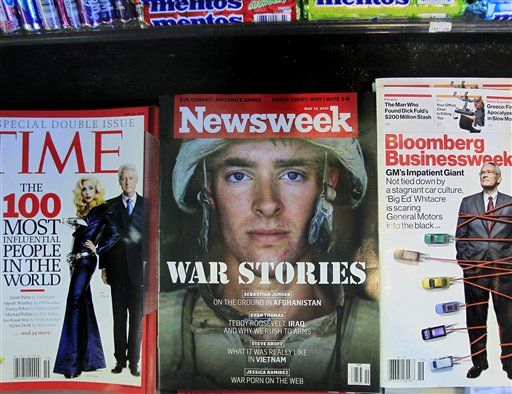
Įdward Kosner became editor from 1975 to 1979 after directing the magazine's extensive coverage of the Watergate scandal that led to the resignation of President Richard Nixon in 1974. The day the claim was filed, Newsweek's cover article was "Women in Revolt", covering the feminist movement the article was written by a woman who had been hired on a freelance basis since there were no female reporters at the magazine. The women won, and Newsweek agreed to allow women to be reporters. In 1970, Eleanor Holmes Norton represented sixty female employees of Newsweek who had filed a claim with the Equal Employment Opportunity Commission that Newsweek had a policy of only allowing men to be reporters. March 1, 1976, story about SLA members Bill and Emily Harris Osborn Elliott was named editor of Newsweek in 1961 and became the editor in chief in 1969.įile:MaNewsweek story on Bill and Emily Harris.jpg The magazine was purchased by The Washington Post Company in 1961.

Over time the magazine developed a broad spectrum of material, from breaking stories and analysis to reviews and commentary. He changed the name to Newsweek, emphasized interpretive stories, introduced signed columns, and launched international editions. In 1937 Malcolm Muir took over as president and editor-in-chief. As a result of the deal, Harriman and Astor provided $600,000 in venture capital funds and Vincent Astor became both the chairman of the board and its principal stockholder between 1937 and his death in 1959. Averell Harriman, and Vincent Astor of the prominent Astor family. In 1937 News-Week merged with the weekly journal Today, which had been founded in 1932 by future New York Governor and diplomat W.

Seven photographs from the week's news were printed on the first issue's cover. The first issue of the magazine was dated February 17, 1933. Williamson served as the first editor-in-chief of Newsweek.

Other large stockholders prior to 1946 were public utilities investment banker Stanley Childs and Wall Street corporate lawyer Wilton Lloyd-Smith. Paul Mellon's ownership in Newsweek apparently represented "the first attempt of the Mellon family to function journalistically on a national scale." The group of original owners invested around $2.5 million. stockholders "which included Ward Cheney, of the Cheney silk family, John Hay Whitney, and Paul Mellon, son of Andrew W. He obtained financial backing from a group of U.S. Martyn, a former foreign-news editor for Time. News-Week was launched in 1933 by Thomas J. January 16, 1939, cover featuring Felix Frankfurter File:Newsweek WWII Armed Forces Overseas Edition 1944.jpg History File:News-Week Feb 17 1933, vol1 issue1.jpgįirst issue of News-Week February 17, 1933įounding and early years (1933–1961) File:Newsweek Felix Frankfurter.jpg

The Washington Post Company (1961–2010).


 0 kommentar(er)
0 kommentar(er)
